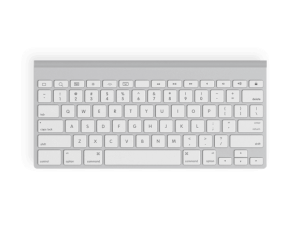Everyone is well aware that Virtual Sports betting has become a hugely important part of the services offered by any reputable sports betting company. The fact that aside from Soccer and Horse Racing betting, Virtual Sports are now the third most important market, in terms of revenue generated for bookmakers, shows how valuable they now are for any site.
Yet, it is amazing to think that this rapid elevation has taken place in such a short period of time. Not too many years ago, Virtual Sports were unheard of (or were thought to be games you played wearing a virtual reality mask). So just how have Virtual Sports suddenly become the third biggest market for sports betting companies? Where did the games originate from?
Fantasy Sports
One of the most often cited sources for the development of Virtual Sports  was the growth in interest in Fantasy Sports game, which proliferated in the 1990s and which remain hugely popular to the present day.
was the growth in interest in Fantasy Sports game, which proliferated in the 1990s and which remain hugely popular to the present day.
These are the games, which can be designed for any number of sports, where a participant can select a number of teams or individuals to be part of their ‘fantasy team’ and through their real life performances in their chosen sport, they will earn their team points. Fantasy teams then take on other fantasy teams and compare points, either in head to head games, or by accumulating them in a league format to decide who is the eventual winner.
Fantasy sports proved hugely popular particularly in American Football in the United States and Football in the UK, where to this day these games remain massively popular with millions of fantasy players around the world. However, I am loathe to believe that these are the original and sole source of the Virtual Sports games we see today.
The problem I have with this is that there is not a lot of resemblance between Virtual Sports betting and Fantasy Sports. Sure, you can now bet on Fantasy Sports if you like (sites like Draft Kings allow you to wager on the performance of your fantasy teams against other players) but this has been a relatively recent phenomenon and it certainly was not commonplace when the first seeds of the Virtual Sports universe as it is today, began to sprout.
The other issue I have is that Fantasy Sports bear no resemblance to Virtual Sports betting in terms of how they work. Fantasy Sports are based on real life performances of teams and individuals, Virtual Sports operates entirely independently of the real world and has no basis in what happens in real life whatsoever. Sure, they are both based on ‘sports’ but their approach to their particular discipline is very different.
I do feel that Fantasy Sports certainly gave some of the first Virtual Sports developers a basic idea about how sports could be used, but I think there are some better and more likely sources for the true inspiration behind Virtual Sports and the first of these is somewhat obvious and that is improvements in technology.
The role of technology in Virtual Sports betting
There is no doubt that without modern technology, such as high quality  programming languages, faster and more reliable internet access, mobile internet capabilities and of course, the widespread availability of the Internet and the technology you can use to access this, all has played a vital role in the development of Virtual Sports betting.
programming languages, faster and more reliable internet access, mobile internet capabilities and of course, the widespread availability of the Internet and the technology you can use to access this, all has played a vital role in the development of Virtual Sports betting.
It is tempting to think that games such as Virtual Sports are a relatively new phenomenon, but even back in the 1980s, there were games being developed which simulated sports and allowed you to bet on games. There were any number of horse racing simulations you could buy which would simulate a horse racing season and allow you to bet, using in game cash only of course, on any number of races taking place in that season.
For me, it is these games that were more likely the inspiration behind the modern Virtual Sports boom and in truth, you can even go back further in time than that.
That’s because in the 1960s and 70s, in many arcades across the country, just as technology was starting to revolutionise how arcades would look and sound, there were a number of ‘horse racing betting’ games available to play.
These were mechanical machines that simulated either a horse race or occasionally a car or motorbike race. You could bet on any of the competitors in the race at set odds increasing in value. The favourite would offer you an even money return while the outside would be a 10/1 bet. You then bet a stated amount (usually it was 2p and 5p initially but over time this increased to 10p) on your chosen horse and then after a set amount of time, the betting period would be frozen and the race would begin.
You could then watch the race unfold in front of you as the mechanical machines whirred into action and you would see the horses, bikes or cars move along the track until one of them passed the finish line first. Any winning bets would then be paid out and the next race would begin with a period of betting.
machines whirred into action and you would see the horses, bikes or cars move along the track until one of them passed the finish line first. Any winning bets would then be paid out and the next race would begin with a period of betting.
Essentially, what you had back in those halcyon days of gaming, was the seeds for the very first Virtual Sport. And it was the advancement of technology, particularly in the 1980s and 1990s which allowed us to take this game and then reproduce it in full online, across a number of different sports.
However, it was only recently that Virtual Sports began to become such a key influencer at casinos, which does beg the question, why had nobody thought to offer Virtual Sports at a casino from the 1990s, when the first online casinos began to appear online?
The answer to that is, once again, technology. In the early days of online gaming, games had to be simple and easy to create as well as play. The expertise and technology to produce the complex games that are now Virtual Sports just did not exist in the early days of the Internet.
Furthermore, the technology required by the end user would also likely have not been able to cope running Virtual Sports. It was only the development of faster, bigger, higher capacity machines, more efficient programming language and a new era of program developers, that saw Virtual Sports change from that mechanised arcade version, into the online version of today.
